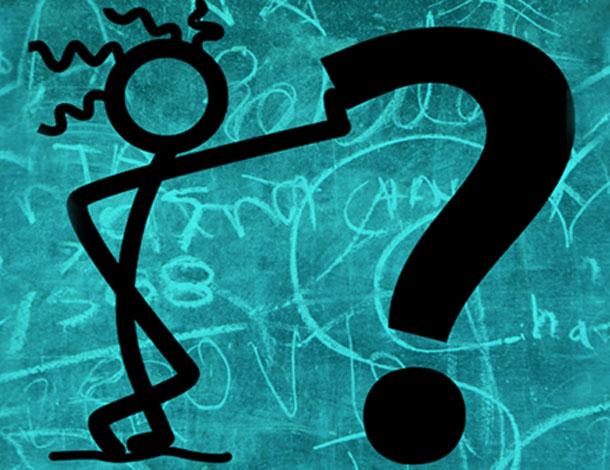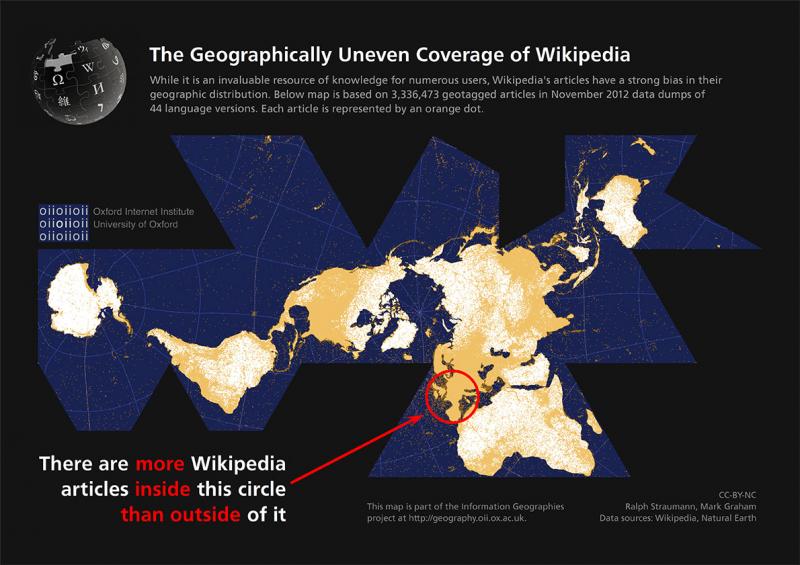Whether it is our lives as women, our experiences as feminists, our histories as indigenous peoples, our struggles as trans women, our analyses as black academics, our achievements as disability rights activists, very little of our complex knowledge and wisdom is easily accessible to the rest of the world on the internet. Whose Knowledge? and a group of Wikimujeres are at AWID’s forum so that we can address this together.

I’m a feminist from India/USA who edits Wikipedia in my spare time. I mostly create or add to articles on women and trans activists, on people and places from Asia Pacific, Africa, Latin America, and really, a combination of these. Unfortunately, very few Wikipedians look like me. Brown, female, and from the global South.
Write about us?
Many of us use Wikipedia as our first stop for information on the internet. In many ways, it is a testimony to the ‘magic’ of the internet - an online encyclopedia that is edited by volunteers from around the world, far more easily accessible and quickly updated than a printed book. Yet Wikipedia - like the rest of the internet - is not yet truly the encyclopedia of the world.
Only 20% of the world (primarily white male editors from North America and Europe) edits 80% of Wikipedia currently. Only 1 in 10 of the editors is estimated to identify as female. A 2011 study by Mark Graham and other researchers at the Oxford Internet Institute analysed Wikipedia articles in every language version about places, events or other geo-locatable issues, and found that Europe and North America were home to 84% of the articles. 2014 research by the group found that most articles written about the global South are still written by those in the global North. In other words, a minority of the world is writing about the majority of the world. And this is true for most spaces of knowledge on the internet.
Don’t write about us without us!
So what does this mean for all of us - feminists and women’s human rights defenders - at the AWID Forum this September?
Even as we fight the challenges of our daily lives - the expanding monetisation and securitisation of our worlds by corporates and governments, the increasing violence by extremist forces who use women’s bodies and lives as their primary targets, the growing dangers of climate change - it is important for us to fight the more hidden challenges of representations of knowledge, and of the violence against us, on the internet.
The UN report on Cyber Violence against Women and Girls found that 73% of women have been exposed to, or experienced, forms of online violence. The Guardian, looking at online harassment and ‘the web we want’, analysed 70M comments on its site from 2006, and found that of the 10 most abused writers, eight are women and the two men are black. Corporates like Facebook have problematic privacy policies, including the recently enforced ‘Real Names’ policy that adversely affected LGBTQI and Native American communities.
Even more broadly, it means that our knowledge is not yet on the internet as it should be. Whether it is our lives as women, our experiences as feminists, our histories as indigenous peoples, our struggles as trans women, our analyses as black academics, our achievements as disability rights activists… very little of our complex knowledge and wisdom is easily accessible to the rest of the world.
Why is this a problem? Because the internet is becoming the default reference and library of the world, especially for young people and powerful decision-makers. And the less we are seen, the less we are heard, the less we are known… the more difficult it is for us to inspire, to challenge, to change the world.
So what can we do?

Whose Knowledge?: the internet that is of, for, and by us all.
This is why Siko Bouterse and I - in partnership with many different individuals, organisations and networks - are launching Whose Knowledge?, a global campaign to reconstruct the internet as being truly from and for us all.
We will be in Bahia in September, with our colleagues and allies from the Wikimedia movement - a delegation of Wikimujeres! Wikimujeres include Wikipedians like Carmen Alcázar, who has been organizing events in Mexico to add missing knowledge about women and feminism to Wikipedia, and Sydney Poore from the USA, whose latest work focuses on issues of health and women.
We’re at AWID’s Forum to share more about Whose Knowledge? campaign, and find out how we can work together with you. We’ll also be sharing information about Wikipedia and other projects where your knowledge can be shared under an open license for the benefit of everyone. Our Wikimujeres will be on hand to help you learn how to edit Wikipedia, or share reports from your organisations in ways that will make them more widely read and referenced.
Most importantly, we will be launching our survey or mapping to learn from you - feminists and women’s human rights organisations - how you create or find knowledge on the internet, and what knowledge that is important to you, is still missing online. Don’t miss the physical maps that we will ask you to add information to, over the days of the forum, and the virtual surveys that will be on laptops at the Femhack Lab.
We’d love you to join us! Perhaps then more editors on Wikipedia will look like us?
